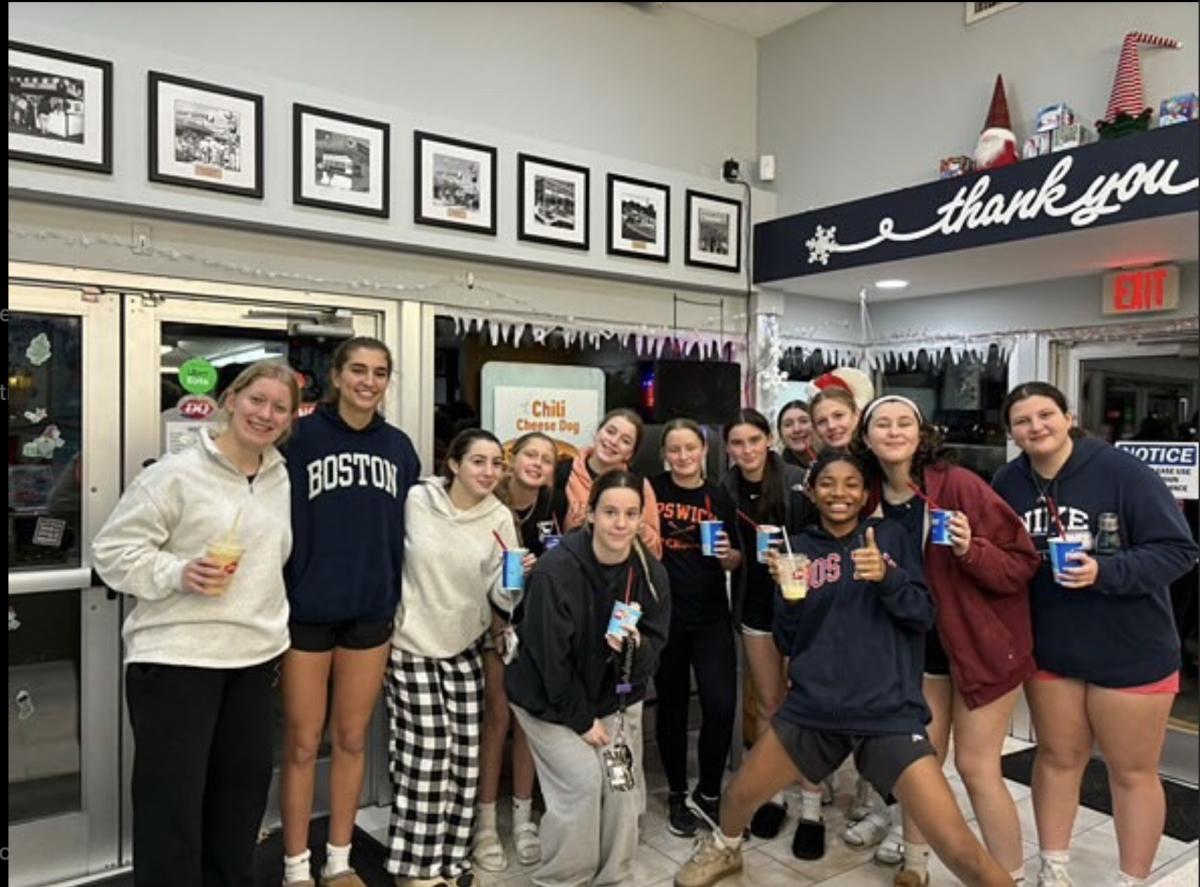Imagine lacing up and running out onto the field in anticipation of your game. One hit, and you’re on the ground with your ears ringing. Next thing you know, you’re in the doctor’s office being diagnosed with a concussion. There is a lot of discussion surrounding concussions because of their effects on young minds. Many questions can arise, such as: How can these be prevented? Or, why do they happen?
Concussions are mild traumatic brain injuries that occur when the brain moves too rapidly back and forth inside the skull due to a hit or jolt to the head. High school sports, although a primary source of excitement and opportunity for teenagers, are also the leading cause of these head injuries. At Ipswich High School, concussions have become a significant issue over the years. Kelley Michael, the athletic trainer, reported that “there were 28 concussions last year” across various sports. Football had the most, with 8 concussions sustained in the 2023 fall season. “More research is being done to help understand the true effects of concussions on young minds, but every concussion is different in terms of severity,” Mr. Caulfield said when asked about the impact of these injuries on teenagers.
Lucy Thompson, a student who suffered a concussion this year in soccer, explained, “Dealing with a concussion is already hard enough because my head is pounding every day, but what makes it more difficult is trying to catch up on schoolwork.” The amount of time a student must sit out varies, but for most, they cannot do schoolwork for at least a week. Catching up on missed content adds stress, and many students, like Lucy, feel anxious when returning to school.
this year in soccer, explained, “Dealing with a concussion is already hard enough because my head is pounding every day, but what makes it more difficult is trying to catch up on schoolwork.” The amount of time a student must sit out varies, but for most, they cannot do schoolwork for at least a week. Catching up on missed content adds stress, and many students, like Lucy, feel anxious when returning to school.
This leads to the question: Do concussions play a role in mental health? The answer is yes. “One study found that youths who experienced concussions are 39% more likely to develop mental health problems than those with other injuries” (Concussionaliance.org). Several factors contribute to this shift in adolescents’ mental states. Mr. Caulfield, the psychology teacher at Ipswich High School, speculated that one reason could be “that when sustaining a concussion, a person experiences a loss of neurons, which disrupts the relationship between these neurons and blood vessels. This disruption can exhaust the brain and lead to mental health issues.” Another reason could be that “After a concussion, your autonomic nervous system may become skewed toward ‘fight or flight.’ When this happens, it can contribute to mental health problems such as anxiety and PTSD” (Cognitivefx.com). In simpler terms, the body remains in a constant state of high alert. These are the more serious causes, but for most students, concussions lead to anxiety from being unable to catch up on schoolwork or feeling left out of activities, such as the sport they were playing.
So, how can we prevent concussions in high school sports? “There aren’t many ways to prevent teenagers from getting concussions,” Kelley Michael explains, “but I would say that working on neck strength and knowing how to make contact in sports are two important things.” Have you ever seen boxers training on TV by doing neck exercises? This is why. In a study by the Journal of Primary Prevention, researchers found that a weaker neck had a higher correlation with concussions, ultimately concluding that “for every one-pound increase in neck strength, the odds of a concussion decreased by 5%” (Iron-neck.com). Knowing this, teenagers can reduce their risk of concussions in contact sports by performing neck exercises to strengthen the muscles. Additionally, basic safety measures such as wearing helmets and mouthguards can be effective in many sports, especially football and hockey.
Overall, the importance of preventing concussions cannot be overstated because “you only get one brain, so it’s important to keep it safe,” Mr. Caulfield emphasized at the end of his interview. The effects of these brain injuries on students are often overlooked, but it’s crucial to take precautions to prevent them—whether through something as simple as exercising your neck daily or wearing a mouthguard. While concussions may never fully go away, Ipswich High School is doing its best to minimize the number of concussions this year.




